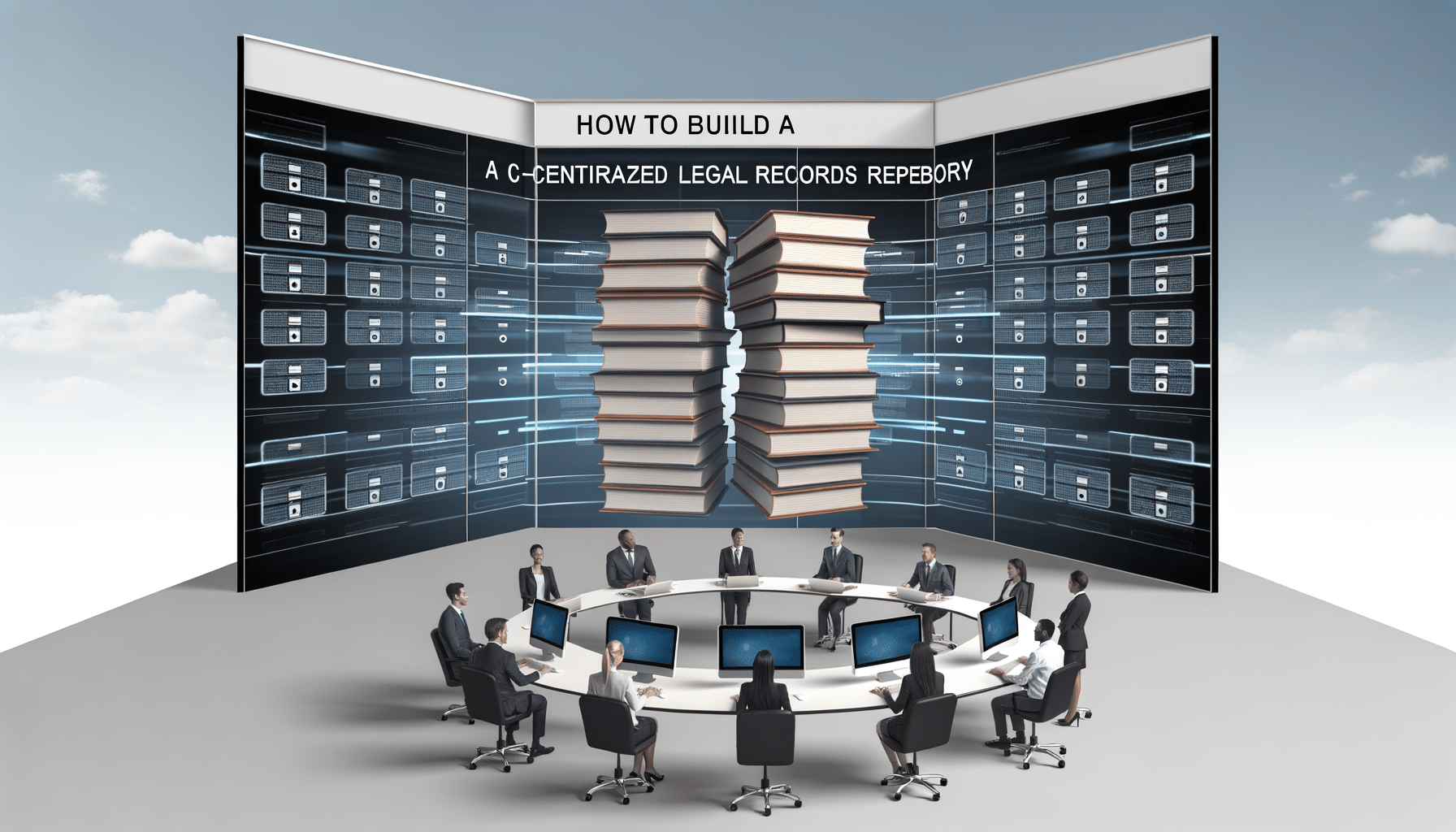Building an Efficient Centralized Legal Records Repository
When dealing with abundant legal documents, the need for an organized system becomes all the more crucial. The conventional approach of managing stacks of paperwork or under-utilized electronic files falls short. Let’s tackle this together by exploring the landscape of building a robust centralized legal records repository, enhancing efficiency, security, and accessibility in the process.
Why Centralized Legal Records Matter
Imagine having every crucial document just a few clicks away—the vision that a centralized legal repository brings to life. It aggregates all necessary legal documents into one secure and efficient space, providing an umbrella of benefits that extend far beyond mere organization.
- Improved Accessibility: With all documents stored in one place, seamless access for authorized personnel is assured. It not only accelerates retrieval but also ensures that legal professionals are more productive.
- Enhanced Security: A centralized system offers controlled access, capitalizing on security measures that protect sensitive legal information from breaches and unauthorized access.
- Cost Efficiency: Resource wastage is remarkably reduced as the need for physical storage, printing, or repetitive document processing diminishes.
- Compliance and Audit Readiness: Adhering to industry standards like GDPR, HIPAA, and more becomes straightforward with a system designed to generate audit-ready reports.
Steps to Establish Your Centralized Legal Records Repository
1. Conduct a Thorough Needs Assessment
Embark on this journey with a comprehensive needs assessment. Identify the types of records your organization handles and how they need to be accessed and managed. Pinpointing these core requirements lays the groundwork for an effective repository.
2. Choose the Right Technology Platform
The effectiveness of your repository is inextricably linked to the technology that underpins it. Consider integrated solutions like RecordsKeeper.AI that leverage AI and blockchain technology for automated categorization, tamper-proof log-keeping, and compliance management. This enables an agile and responsive system that evolves with the changing needs of legal information management.
3. Transition to a Digital Framework
Digitize all paper records, ensuring they are classified correctly and stored securely. Tools that automatically tag and categorize these documents, like the AI-powered systems of RecordsKeeper.AI, can streamline this process significantly.
4. Implement Data Security Protocols
Security cannot be an afterthought. Devise and integrate comprehensive security policies ensuring only authorized personnel can access specific documents. Features like secure data rooms provide an added layer of protection, with controlled access and real-time activity tracking offering peace of mind.
5. Train Personnel and Establish Governance Policies
Equip your team with the necessary skills to navigate the centralized system professionally. Training should encompass both technical aspects and the principles of adhering to governance policies regarding data retention, retrieval, and deletion practices.
6. Regular Backups and Audit Trails
Establish a routine backup protocol to protect against data loss, and leverage automated audit logging to maintain transparency. Blockchain integrations offer immutable recording for unchallenged authenticity.
7. Continuously Monitor and Upgrade
Technology and legal regulations are ever-evolving. Keep abreast of changes, updating your systems and processes accordingly to maintain compliance and efficiency.
The Role of RecordsKeeper.AI in Transforming Legal Repositories
RecordsKeeper.AI stands as a beacon for modernizing legal record management. Imagine a world where regulatory compliance is automated, where data retrieval obeys natural language queries, and where the integrity of every record is verified via a blockchain ledger. This is precisely what we are achieving. With RecordsKeeper.AI, I have seen firsthand how businesses and legal entities transform cumbersome record management practices into strategic advantages.
The inclusion of automated workflows means that the pains previously associated with managing legal documents become a thing of the past. As such, our focus as professionals can remain firmly on what truly matters—delivering value through legal services.
Conclusion
Creating a centralized legal records repository can fundamentally enhance the way you manage legal documents. By focusing on accessibility, security, and compliance, you position your organization to act with greater agility and precision. I invite you to explore how innovations in AI and blockchain, like those integrated into RecordsKeeper.AI, can further elevate your record management system. Follow along as we continue to transform record management into a strategic advantage.
For more insights on leveraging technology to enhance record management, keep following my updates. Together, we can navigate the path of efficiency, compliance, and innovation in the world of legal records management.








